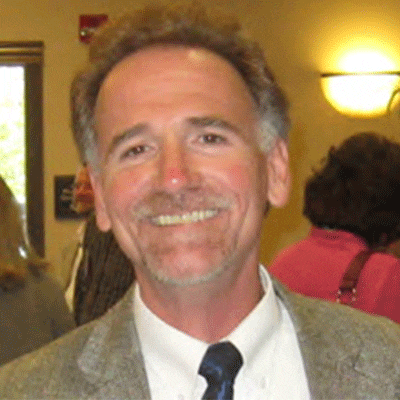 In each newsletter, Sims provides a featured interview of a customer, partner, or colleague within the field of recycling. These interviews can provide an opportunity to learn about the different aspects of recycling, whether from an economic, environmental, or social perspective. This issue’s profile features Walter Willis, the Executive Director of the Solid Waste Agency of Lake County, Illinois (SWALCO).
In each newsletter, Sims provides a featured interview of a customer, partner, or colleague within the field of recycling. These interviews can provide an opportunity to learn about the different aspects of recycling, whether from an economic, environmental, or social perspective. This issue’s profile features Walter Willis, the Executive Director of the Solid Waste Agency of Lake County, Illinois (SWALCO).
What is the SWALCO and what are its primary activities?
SWALCO was formed in 1991 to implement the Lake County Solid Waste Management Plan, and is comprised of 42 municipal members of Lake County. Lake County is in the northeast corner of Illinois, just north of Chicago and south of Wisconsin, and is the 3rd most populous county in the state with 700,000 residents.
The Agency’s five staff members are tasked with planning and implementing programs that increase reuse, recycling and composting activities in the County and decrease our reliance on landfill for final disposal. Primary areas of focus are planning, consulting (helping members develop hauling contracts and more progressive collection programs), providing public education about recycling, and running collection and recycling programs (electronics, textiles, household hazardous waste, etc.)
How long have you been the Executive Director of SWALCO and what is your background?
I’ve been the Executive Director at SWALCO since 2007. Since I was a kid, I’ve always been interested in the outdoors and the woods. My family did a lot of camping and backpacking and I still do that with my children today. I got an internship with the Solid Waste Management Unit of the Illinois Environmental Protection Agency right out of college which turned into a full time job and I have been working in the solid waste and recycling field, both in the private and public sectors, for 27 years now.
How is SWALCO funded?
We are a self-sustaining unit of local government with roughly a $1 million annual budget. The budget is largely funded via landfill fees (60%), membership fees (20%) and various other sources including household waste disposal fees and rebates from recycling programs for items such as textiles, shoes and electronics.
How have SWALCO’s core program areas evolved or changed since your start at the Agency?
When I first started at SWALCO in 2007, the Agency needed to get spending under control. The majority of members had unlimited waste disposal contracts in place and no way of making residents financially responsible for their disposal habits. More than half of our members now have pay-as-you-throw programs in place and many have upgraded their hauling contacts making operating costs a lot more transparent and predictable.
I’m also proud to say that involvement by members in different collection programs we coordinate has increased a lot. Without the participation or labor provided by the public works staff in our towns, some of our programs would not be what they are today.
What is the recycling or solid waste “hot topic” SWALCO is working on right now?
We are currently updating the County’s Solid Waste Management Plan which was last updated in 2009. A member task force spent more than a year coming up with the new plan and report and it is a key driver for our members. Our aim is to get to 60% diversion by 2020. We are at approximately 47% right now.
Food waste is also the next big frontier legislatively and programmatically. We did a residential collection pilot in Highland Park and currently have 50 businesses collecting food waste. SWALCO is an active member of the Illinois Food Scrap Coalition and we are looking to have an ordinance pass that will allow us to comingle yard and food waste set out for collection.
What new initiatives are planned for 2015?
On top of getting to 60% diversion and food waste programs, we are also going to work with the Illinois legislature to try to get a product stewardship law for both paint and carpet passed. Products stewardship bills for both products failed to pass in 2014 and 2013 (paint).
How has SWALCO played a role in product stewardship initiatives on a local or national level?
I am on the board of the Product Stewardship Institute and SWALCO has taken a leadership role in collaboratively working with stakeholders and legislators throughout Illinois to craft and introduce a variety of product stewardship bills (e-scrap, plastic bags, paint, carpet) in the state. It’s important that manufacturers understand and take some responsibility for the externalities their products cause.
Tell us about SWALCO’s electronics recycling program.
We have been providing opportunities for residents to safely and conveniently dispose of electronic items through community recycling events or drop offs since 2000. We have a robust collection network whose success is possible through the support and hard work of our 42 municipal members and the help of Sims Recycling Solutions. We successfully collected close to 4 million pounds of electronics in 2013 and expect to do the same this year. We are fortunate to be partnered with Sims because not only are they an Illinois business, but they are uniquely qualified to provide the logistical support, processing capacity, and attention to detail required to make our high volume program run smoothly.
What do you like to do when not trying to make SWALCO’s many members happy?
Even though they are getting older, spending time with my kids is what I enjoy most. I just finished running a travel soccer program my kids were involved in for 6 years and also have been running a local children’s basketball program for the past 4 years. Being outdoors, camping or canoeing is always on the list too.
